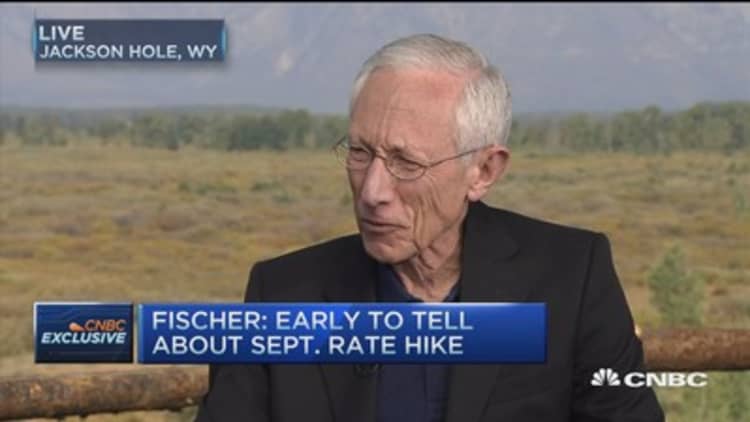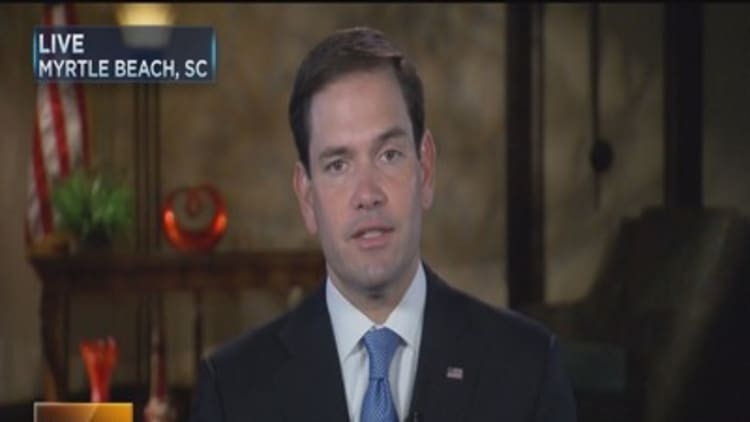


The yuan, China's market, and global confidence in Beijing are all dropping. It's not an easy time to be the leader of the world's second-biggest economy.
President Xi Jinping has consolidated more power within his country than any other Chinese leader since the early '90s, just in time for a major economic slowdown and financial markets turmoil—the Shanghai Composite tumbled again Tuesday as China reported its weakest factory activity in three years.
Now, Chinese leadership is under "immense" pressure from within and without, John Minnich, East Asia analyst at geopolitical intelligence firm Stratfor, told CNBC.
"It's kind of a perfect storm where a lot of these things are hitting," he said. "None of these issues by themselves would be enough to apply pressure, but together...."
A deadly industrial explosion in Tianjin last month cast further doubt on Xi's capability to control local officials, a politically inopportune event during a key moment in his campaign to reform China's economy and environmental practices at the same time.
"We're approaching a moment where, in the next couple months, if there is going to be resistance from within the leadership against Xi, we're going to see (it) emerging more strongly," Minnich said.
And as this moment has approached, Beijing's handling of the stock market crash—which saw everything from liquidity interventions to arrests for allegedly malicious selling—represented the first big stumble for the Xi administration, said Nicholas Consonery, Asia director for the Eurasia Group.
But even with this "perfect storm" of resistance forming, Xi appears to have already consolidated sufficient power to achieve his reform goals, experts told CNBC.
While Eurasia Group's Consonery said the equity market interventions were "definitely" counterproductive, he's still optimistic about Xi's plans to manage broader economic headwinds.
"I'm not overly panicked about their ability to manage through these problems," he said, adding that it's unlikely there will be any changes at the top of the country's leadership.
Minnich agreed that Xi and his close allies won't lose control of the situation—especially given his continuing popularity with the regular citizenry—but his capacity to institute reforms may be limited by political resistance.
"Xi is not all-powerful," Minnich said.
In fact, it appears that Beijing is even trying to warn off would-be resistance from within. Chinese state media carried an editorial in August warning retired officials not to undermine the Communist Party by agitating against its current leadership. Additionally, another state commentary reportedly warned that Xi's reforms encountered "unimaginably fierce resistance" from different interest groups.
Even the media—normally considered a mouthpiece of Beijing's power—may have angered the Xi administration.
Last week, authorities arrested Liao Hong, CEO and editor-in-chief of People's Daily Online, allegedly on suspicion of taking bribes. Many have suggested that the move is punishment for not following a governmental edict.
People's Daily did not respond to a CNBC request for comment.
"Leadership is moving into a time when it needs to be sure it can be effective at shaping domestic perceptions of its actions," Minnich explained, so Xi may be attempting to redouble his control over the media.
Still, as with many aspects of China analysis, the country's political inner workings remain largely opaque, so the exact nature of the situation is difficult to ascertain.



